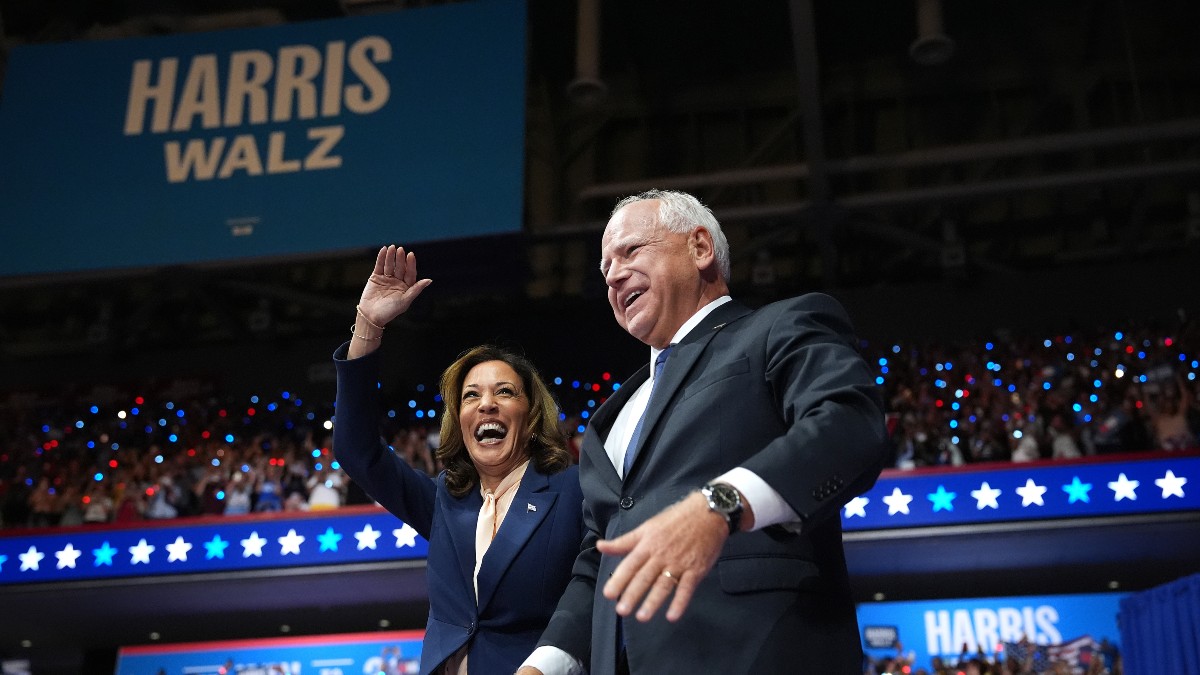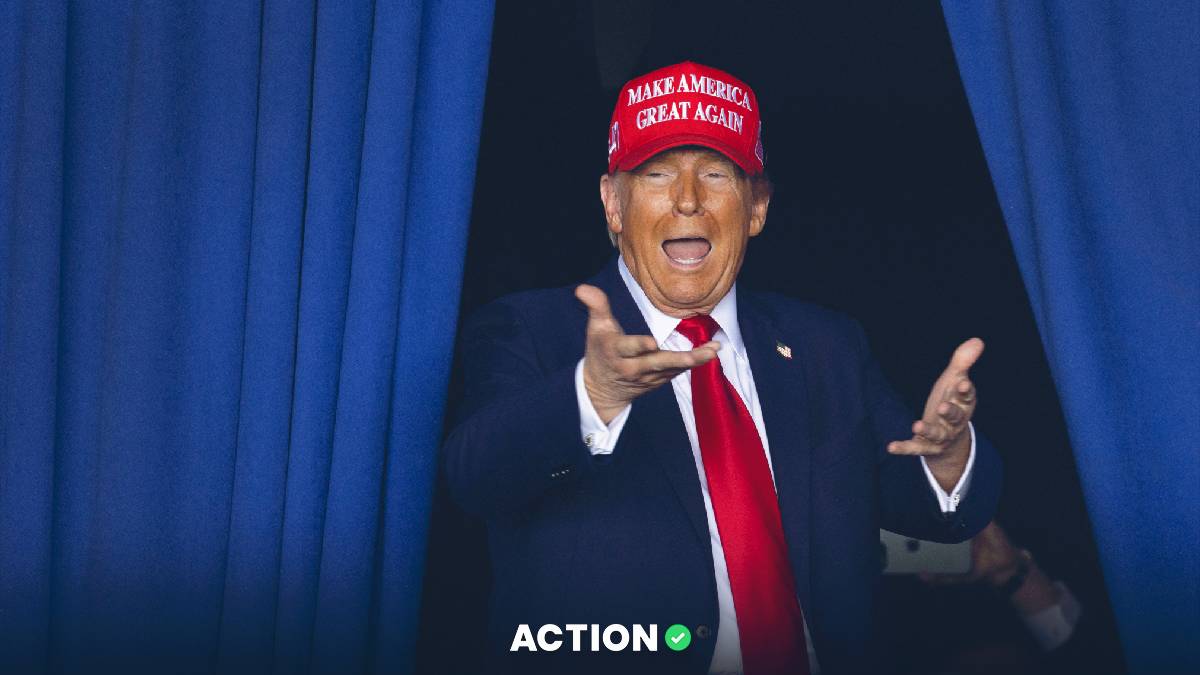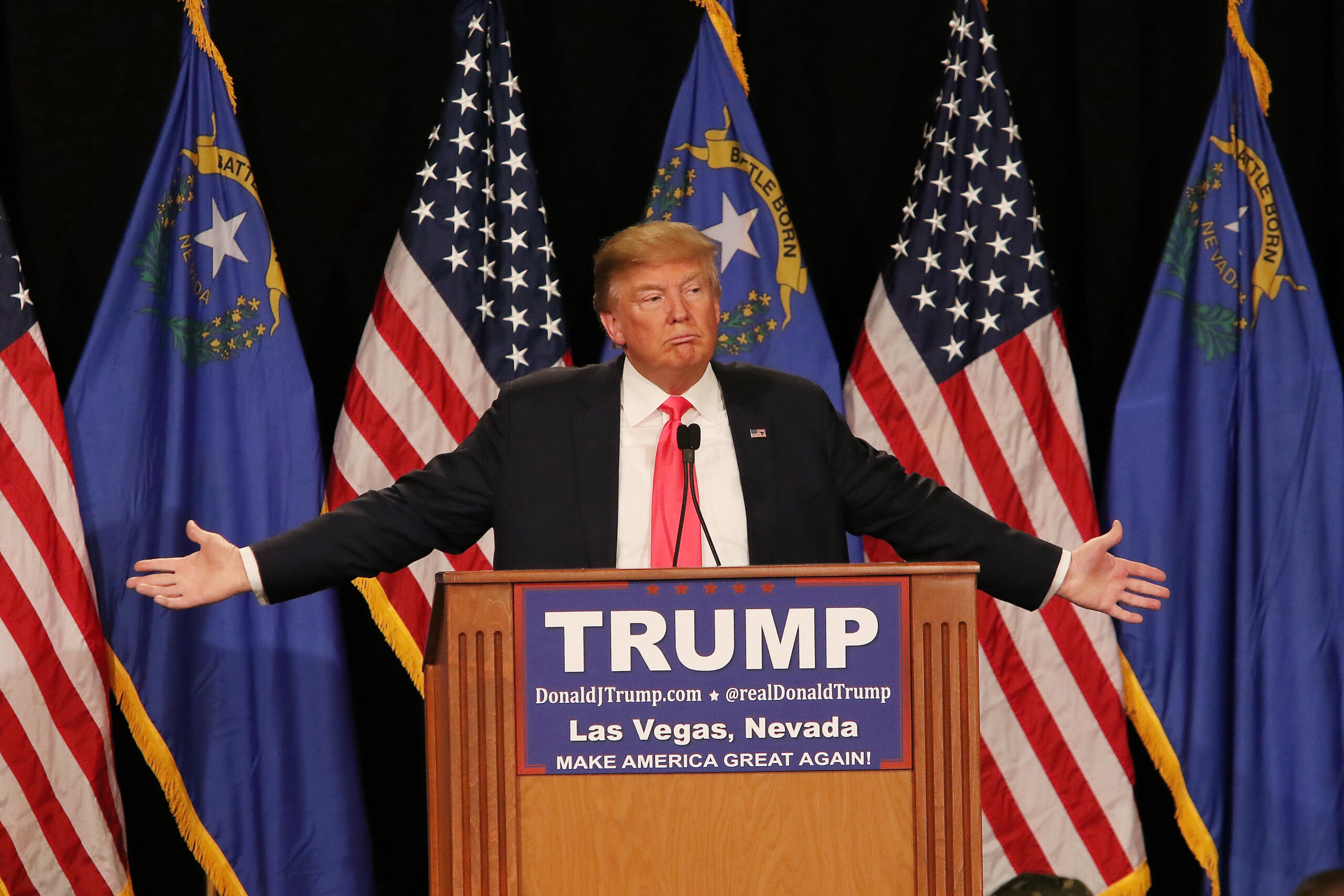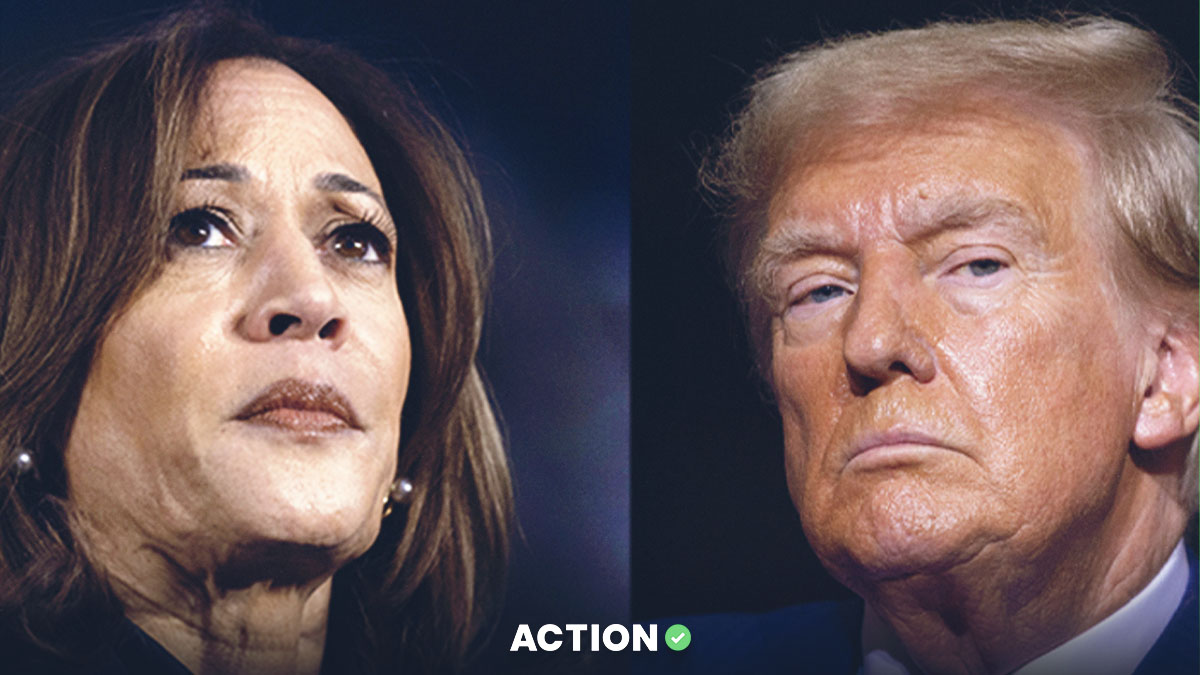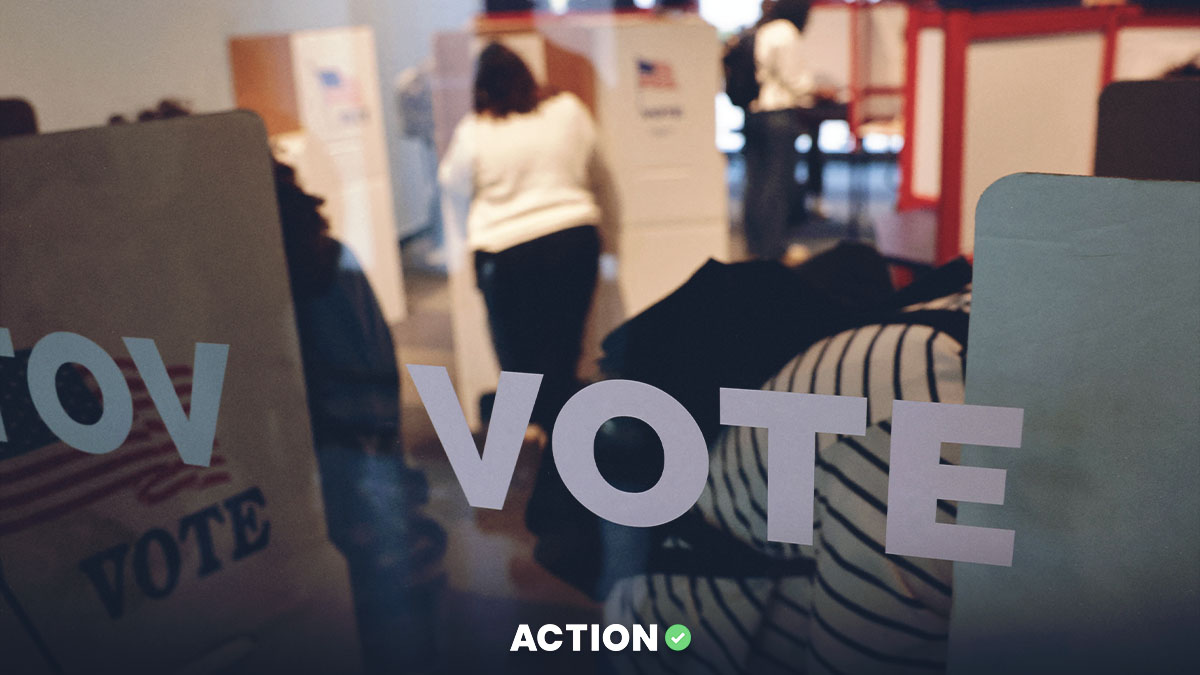2024 Presidential Election Odds, Predictions
| Presidential Candidate | Election Odds | Chance to Win Election |
|---|---|---|
| Donald Trump | -118 | 49.71% |
| Kamala Harris | -110 | 48.10% |
| Robert F. Kennedy Jr. | +10000 | 0.90% |
| Hillary Clinton | +20000 | 0.45% |
| Michelle Obama | +20000 | 0.45% |
| Nikki Haley | +25000 | 0.36% |
Odds are according to BetMGM in the United Kingdom. The "chance to win the election" percentages are based on implied probabilities with the vigorish removed. Gambling on elections is not legally allowed at sportsbooks in the United States.
The presidential race between Kamala Harris and Donald Trump is now essentially a coin flip.
Former President Trump has seen his 2024 presidential election odds dip below 50% vs. Vice President Harris — a staggering election betting odds market alteration, considering Trump had odds of almost 65% less than a month ago.
Donald Trump vs Kamala Harris Presidential Election Odds: The Closest the 2024 Election Has Been
Since President Joe Biden began indicating he may drop out of the race earlier this summer, Harris has seen her odds slowly close in on Trump. Never has it gotten this close, however.
Donald Trump Presidential Election Odds
As of Wednesday morning, former President Trump has a 49.71% chance to win the 2024 election, based on his presidential election odds of -118.
Trump's odds moved to -122 first thing on Wednesday, then moved again just an hour later to their current -118. The odds-based presidential election predictions had given Trump a greater than 50% chance to win the election since March, when he swept the Super Tuesday Republican primaries.
Since March, Trump's odds have occasionally gotten even worse than their current -118. He was -105 in early May as he stood trial for his hush-money scandal, which gave him a 46.27% chance of winning the election at the time.
But even after his guilty verdict at the end of May, Trump saw his odds continue to get better, moving to -150, then to -200 after President Joe Biden's awful performance in the Trump vs. Biden debate.
The apparent assassination attempt on Trump at a July rally saw him become a whopping -400 favorite.
But because the presidential election predictions have become a clear-cut race between Trump and Vice President Harris, this is the closest the 2024 presidential election has ever been, with Trump and Harris separated by less than 2%.
Kamala Harris Presidential Election Odds
Vice President Harris is now minus-money for the first time in the 2024 presidential election campaign. At her current odds of -110, Vice President Harris has a 48.10% chance of winning the 2024 presidential election.
Harris hit her previous high water mark on Tuesday, when her odds in the market were at 45.68%, with betting odds at +100 compared to Trump's odds at -131. Trump had still been the favorite at roughly 52.15%, but it was the lowest mark he had put up all year.
On Wednesday morning — after a rally introducing her VP choice, Minnesota governor Tim Walz, where he went viral for a comment made at J.D. Vance's expense — Harris' odds shortened to -110 and her current implied probability of 48.10% that she'll win the presidency.
Presidential Election Predictions: What the Polls Are Saying Given the Presidential Election Odds
Harris has utilized a strong social media presence to turn the tides, with an increasing number of young voters now indicating they’ll vote for the candidate over Trump.
The same trend seems to be persisting among independent voters and non-voters.
For instance, Nate Silver's polls indicate Harris is a slight favorite over Trump at the moment, with leads in key battleground states like Michigan, Wisconsin and Pennsylvania, which would ostensibly be enough to win the election.
Meanwhile, a poll from NPR/PBS News has given Harris the nod for the first time all race, too.
It’s momentum that the Democratic Party sought — and foresaw — as they pressured to push President Biden out of the race.
Harris had been as long +5000 after the first debate between Biden and Trump in late June, an implied probability of under 2%. But Biden’s dropout and Harris’ strong polling has shifted market odds toward its current equilibrium.
Presidential Election Odds for Winning Party of 2024 Electoral College
| Party | Odds | Chance to Win |
|---|---|---|
| Republicans | -118 | 50.35% |
| Democrats | -110 | 48.73% |
| Independent/Any Other Party | +10000 | 0.92% |
Finally, let's take a look at the candidate-agnostic odds for which party will win in November.
The odds on which party will win the Electoral College, and therefore the White House, are very directly aligned with the odds for Trump, Harris and the rest of the field.
With Trump at -118, the Republican Party is also at -118 to win in November. Similarly, with Harris at -110, the Democrats are at -110.
The current presidential election odds give the Republicans a 50.35% chance of winning in November and the Democrats a 48.73% chance, with an Independent or third-party candidate given a 0.92% chance.
Presidential Election Odds for Winning Party of 2024 Popular Vote
| Party | Odds | Chance to Win |
|---|---|---|
| Democrats | -600 | 77.76% |
| Republicans | +325 | 21.35% |
| Independent/Any Other Party | +10000 | 0.90% |
As for the popular vote, the Democrats are now massive -600 favorites, which equals a 77.76% chance of earning the most votes across the country. The Republicans are +325 to win the popular vote, a 21.35% chance.
The Dems have won the past four popular votes by at least 2% (4.45% in 2020, 2.09% in 2016, 3.86% in 2012 and 7.27% in 2008) and have won seven of the past eight popular votes overall.
Remember, though, that the United States presidential election is decided by which candidate wins the 270 electoral votes necessary to win the Electoral College.
Electoral votes are allocated on a state-by-state basis, based on the number of members of the House of Representatives, plus the two members of the Senate in each state, with Washington, D.C. also having three electors, for a total of 538 electoral college votes.
That means that 270 electoral votes is the minimum number needed to win the majority of the votes. In the exceedingly rare event of a tie in the Electoral College, the House of Representatives determines the President, with each state having one vote, and the Senate determines the Vice President.


